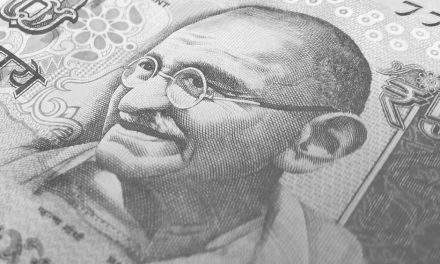Table of Contents
- Introduction
- The Impact of Arab Leaders in Sports on National Identity
- Strategies and Tactics: How Arab Leaders Build Successful Sports Teams
- Inspiring the Next Generation: Arab Leaders as Role Models in Sports
- Breaking Barriers: Arab Leaders’ Contributions to Diversity and Inclusion in Sports
- Q&A
- Conclusion
“Arab Leaders in Sports: Building Teams, Inspiring Nations”
Introduction
“Arab Leaders in Sports: Building Teams, Inspiring Nations” explores the significant role played by Arab leaders in the world of sports. This article delves into the impact these leaders have had in building successful teams and inspiring their nations through their involvement in various sports disciplines. From fostering talent development to promoting inclusivity and national pride, Arab leaders have left an indelible mark on the sporting landscape, showcasing their commitment to excellence and unity.
The Impact of Arab Leaders in Sports on National Identity

The Impact of Arab Leaders in Sports on National Identity
Sports have always played a significant role in shaping national identity, and Arab leaders in sports have been instrumental in building teams and inspiring nations. These leaders have not only achieved remarkable success in their respective sports but have also become symbols of national pride and unity. Through their dedication, passion, and leadership, they have brought people together, transcending boundaries and fostering a sense of belonging.
One such Arab leader in sports is Mohamed Salah, the Egyptian football sensation. Salah’s rise to stardom has not only brought glory to his country but has also become a source of inspiration for millions of Egyptians. His exceptional skills on the field have earned him numerous accolades, including being named the African Footballer of the Year multiple times. Salah’s success has not only elevated the status of Egyptian football but has also instilled a sense of pride and unity among the Egyptian people.
Similarly, in the world of tennis, Rafa Nadal, the Spanish tennis superstar, has become an icon of national identity. Nadal’s relentless determination and unwavering spirit have made him one of the greatest tennis players of all time. His numerous victories, including multiple Grand Slam titles, have not only brought glory to Spain but have also united the Spanish people. Nadal’s success has transcended the boundaries of sports, becoming a symbol of resilience and national pride.
Arab leaders in sports have also played a crucial role in promoting gender equality and empowering women. One such leader is Sarah Essam, the first Egyptian woman to play professional football. Essam’s journey has been an inspiration for young girls across Egypt, breaking stereotypes and paving the way for future generations. Her success has not only challenged societal norms but has also given hope to aspiring female athletes, encouraging them to pursue their dreams.
Furthermore, Arab leaders in sports have used their platform to address social issues and promote positive change. Yusra Mardini, a Syrian refugee and Olympic swimmer, has become a symbol of resilience and hope. Mardini’s incredible journey, fleeing war-torn Syria and saving lives during a treacherous sea crossing, has captured the world’s attention. Her determination and courage have not only brought attention to the plight of refugees but have also inspired millions around the globe.
In addition to individual achievements, Arab leaders in sports have also made significant contributions to their national teams. The success of the Algerian national football team, led by coach Djamel Belmadi, in winning the Africa Cup of Nations in 2019, brought immense joy and pride to the Algerian people. Belmadi’s leadership and tactical brilliance were instrumental in guiding the team to victory, uniting the nation in celebration.
The impact of Arab leaders in sports on national identity cannot be overstated. Through their achievements, they have become symbols of national pride, unity, and resilience. They have inspired generations, transcending boundaries and fostering a sense of belonging. These leaders have not only built successful teams but have also built nations, leaving a lasting legacy that will continue to inspire future generations. As Arab leaders in sports continue to make their mark on the world stage, their impact on national identity will undoubtedly continue to grow.
Strategies and Tactics: How Arab Leaders Build Successful Sports Teams
Arab Leaders in Sports: Building Teams, Inspiring Nations
Strategies and Tactics: How Arab Leaders Build Successful Sports Teams
Sports have always been a powerful tool for bringing people together, fostering national pride, and inspiring individuals to achieve greatness. In the Arab world, sports have played a significant role in shaping the region’s identity and promoting unity among its diverse population. Arab leaders have recognized the potential of sports as a means to build successful teams and inspire their nations. Through strategic planning, investment, and a focus on talent development, Arab leaders have been able to create sports teams that not only excel on the field but also serve as a source of national pride.
One of the key strategies employed by Arab leaders is investing in sports infrastructure. They understand that to build successful teams, they need to provide athletes with state-of-the-art facilities and training centers. These investments not only create an environment conducive to excellence but also attract top talent from within and outside the region. By building world-class stadiums, training grounds, and sports academies, Arab leaders are sending a clear message that they are serious about developing their sports teams.
In addition to infrastructure, Arab leaders also focus on talent development. They understand that to build successful teams, they need to identify and nurture young talent from an early age. Arab countries have established robust youth development programs that provide aspiring athletes with the necessary training and support to reach their full potential. These programs often include scouting networks, specialized coaching, and access to international competitions. By investing in talent development, Arab leaders are ensuring a steady pipeline of skilled athletes who can represent their nations at the highest level.
Furthermore, Arab leaders recognize the importance of international exposure for their sports teams. They understand that competing against top teams from around the world is crucial for their athletes’ growth and development. To achieve this, Arab leaders actively seek opportunities for their teams to participate in international tournaments and friendly matches. By exposing their athletes to different playing styles and levels of competition, Arab leaders are helping them gain valuable experience and improve their skills. This international exposure also helps raise the profile of Arab sports teams on the global stage, attracting attention and admiration from fans worldwide.
Another strategy employed by Arab leaders is fostering a culture of teamwork and unity within their sports teams. They understand that success in sports is not just about individual talent but also about how well the team works together. Arab leaders emphasize the importance of teamwork, discipline, and respect among their athletes. They encourage a sense of camaraderie and instill a strong work ethic that drives their teams to achieve greatness. By promoting these values, Arab leaders are not only building successful sports teams but also nurturing individuals who can become role models for their nations.
In conclusion, Arab leaders have successfully built and nurtured sports teams that inspire their nations. Through strategic planning, investment in infrastructure, talent development, international exposure, and fostering a culture of teamwork, Arab leaders have created a winning formula for success. These sports teams not only excel on the field but also serve as a source of national pride and unity. Arab leaders understand the power of sports in bringing people together and inspiring individuals to achieve greatness. By investing in their sports teams, Arab leaders are not only building successful athletes but also shaping the identity of their nations.
Inspiring the Next Generation: Arab Leaders as Role Models in Sports
Arab Leaders in Sports: Building Teams, Inspiring Nations
Sports have always played a significant role in shaping societies and inspiring individuals. In the Arab world, sports have become a powerful tool for building teams and inspiring nations. Arab leaders, both past and present, have emerged as role models in the world of sports, leaving a lasting impact on the next generation.
One of the most prominent Arab leaders in sports is Sheikh Mohammed bin Rashid Al Maktoum, the Vice President and Prime Minister of the United Arab Emirates. Sheikh Mohammed has been a driving force behind the development of sports in the UAE, particularly horse racing. His passion for equestrian sports has not only transformed Dubai into a global hub for horse racing but has also inspired countless young Emiratis to pursue their dreams in the sport.
Another influential figure in Arab sports leadership is Sheikh Salman bin Ibrahim Al Khalifa, the President of the Asian Football Confederation (AFC). Under his guidance, the AFC has witnessed remarkable growth and development, with a focus on promoting football at all levels across Asia. Sheikh Salman’s dedication to the sport has not only elevated the status of Asian football but has also inspired young Arab athletes to strive for excellence on the international stage.
In addition to these leaders, there are numerous Arab athletes who have become icons in their respective sports, serving as role models for aspiring athletes across the region. One such athlete is Mo Farah, a British long-distance runner of Somali and Yemeni heritage. Farah’s remarkable achievements, including winning multiple Olympic gold medals, have not only brought pride to the Arab community but have also inspired young Arab athletes to believe in their own potential.
The impact of Arab leaders and athletes in sports goes beyond individual achievements. They have played a crucial role in promoting inclusivity and breaking down barriers in a region where sports were once seen as a male-dominated domain. Arab women, in particular, have been empowered by the success of their female counterparts, such as Sarah Essam, the first Egyptian woman to play professional football in Europe. These trailblazers have shattered stereotypes and paved the way for future generations of Arab women to pursue their sporting dreams.
Furthermore, Arab leaders have recognized the power of sports in fostering national unity and pride. They have invested heavily in sports infrastructure, hosting international tournaments and events that bring people from different backgrounds together. The Qatar 2022 FIFA World Cup, for example, is not only a celebration of football but also an opportunity for the Arab world to showcase its rich culture and hospitality to the world.
In conclusion, Arab leaders in sports have played a pivotal role in inspiring the next generation and building teams that unite nations. Their passion, dedication, and achievements have not only elevated the status of Arab athletes but have also broken down barriers and empowered individuals across the region. As we look to the future, it is clear that Arab leaders will continue to shape the world of sports, leaving a lasting legacy for generations to come.
Breaking Barriers: Arab Leaders’ Contributions to Diversity and Inclusion in Sports
Arab Leaders in Sports: Building Teams, Inspiring Nations
Sports have always been a powerful tool for bringing people together, breaking down barriers, and promoting diversity and inclusion. In recent years, Arab leaders have emerged as key figures in the world of sports, making significant contributions to the promotion of these values. Through their leadership, they have not only built successful teams but also inspired nations.
One such leader is Sheikh Mansour bin Zayed Al Nahyan, the owner of Manchester City Football Club. Under his ownership, the club has experienced unprecedented success, winning multiple Premier League titles and establishing themselves as one of the top teams in Europe. Sheikh Mansour’s investment in the club has not only transformed its fortunes but has also had a profound impact on the city of Manchester. The club’s success has brought people from diverse backgrounds together, fostering a sense of unity and pride in the community.
Another Arab leader who has made a significant impact in the world of sports is Sheikh Ahmad Al-Fahad Al-Sabah. As the President of the Olympic Council of Asia, Sheikh Ahmad has been instrumental in promoting diversity and inclusion in the Olympic movement. He has worked tirelessly to ensure that athletes from all backgrounds have equal opportunities to participate and excel in the games. Through his leadership, the Olympic Council of Asia has implemented various initiatives to support athletes from underrepresented communities, empowering them to compete at the highest level.
In addition to their contributions to team sports, Arab leaders have also made their mark in individual sports. One notable example is H.H. Sheikh Mohammed bin Rashid Al Maktoum, the Vice President and Prime Minister of the United Arab Emirates and the ruler of Dubai. Sheikh Mohammed is an avid equestrian and has played a pivotal role in the development of horse racing in the region. His vision and investment have transformed Dubai into a global hub for equestrian sports, attracting top riders and trainers from around the world. Through his passion for the sport, Sheikh Mohammed has not only built a successful racing industry but has also inspired a new generation of equestrians in the Arab world.
Arab leaders’ contributions to diversity and inclusion in sports extend beyond their own countries. They have also played a crucial role in promoting these values on the international stage. One example is Sheikh Salman bin Ibrahim Al Khalifa, the President of the Asian Football Confederation and a member of the FIFA Council. Sheikh Salman has been a vocal advocate for diversity and inclusion in football, working to ensure that the sport is accessible to all, regardless of their background. His efforts have led to the implementation of various initiatives aimed at promoting diversity and inclusion in football, including the AFC’s “It’s My Game” campaign, which seeks to empower women in the sport.
In conclusion, Arab leaders have emerged as key figures in the world of sports, making significant contributions to the promotion of diversity and inclusion. Through their leadership, they have built successful teams, inspired nations, and worked tirelessly to ensure that athletes from all backgrounds have equal opportunities to participate and excel in sports. Their efforts have not only transformed the sporting landscape in their own countries but have also had a profound impact on the international stage. As we look to the future, it is clear that Arab leaders will continue to play a crucial role in breaking down barriers and promoting diversity and inclusion in sports.
Q&A
1. What is “Arab Leaders in Sports: Building Teams, Inspiring Nations” about?
“Arab Leaders in Sports: Building Teams, Inspiring Nations” is a book or event that focuses on the role of Arab leaders in sports and how they contribute to team building and inspiring their nations.
2. Who are the target audience for “Arab Leaders in Sports: Building Teams, Inspiring Nations”?
The target audience for “Arab Leaders in Sports: Building Teams, Inspiring Nations” is likely individuals interested in sports leadership, Arab culture, and the impact of sports on national inspiration.
3. What is the purpose of “Arab Leaders in Sports: Building Teams, Inspiring Nations”?
The purpose of “Arab Leaders in Sports: Building Teams, Inspiring Nations” is to highlight the achievements and influence of Arab leaders in the field of sports, showcasing their ability to build successful teams and inspire their respective nations.
4. Where can one find “Arab Leaders in Sports: Building Teams, Inspiring Nations”?
“Arab Leaders in Sports: Building Teams, Inspiring Nations” can potentially be found in bookstores, online retailers, or through event organizers who may host discussions or presentations related to the topic.
Conclusion
In conclusion, Arab leaders in sports play a crucial role in building teams and inspiring nations. Through their dedication, passion, and strategic leadership, they have successfully nurtured talented athletes, developed world-class sports infrastructure, and promoted a sense of national pride. These leaders have not only achieved remarkable success on the international stage but have also used sports as a means to unite their nations, foster social cohesion, and promote positive values. Their efforts have not only elevated the status of Arab nations in the global sports arena but have also left a lasting impact on their societies, inspiring future generations to pursue excellence in sports.




